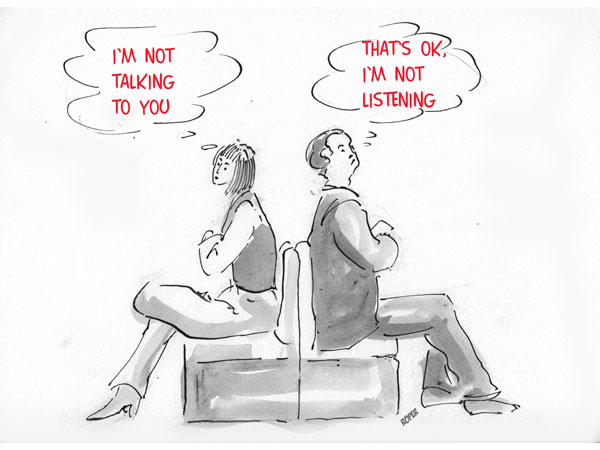If there’s one thing great leaders have in common, it’s their ability to communicate with clarity, integrity, and presence. They can paint a compelling vision, rally a team around a shared purpose, and make people feel genuinely heard.
But some surprisingly common habits can quietly undermine all that.
Julian Treasure’s popular TED Talk, How to speak so that people want to listen, outlines seven ‘deadly sins’ of speaking that kill connection. The message is as relevant as ever – maybe even more so in today’s fast-paced world of work.
Here’s a summary of those habits, plus one I believe is even more crucial for leaders today, with some practical reflections for SME founders and senior leaders.
1. Gossip
If trust is the foundation of effective leadership, gossip is the wrecking ball.
Sharing confidential info might make someone feel powerful for a moment – but once your team hears you gossip about others, they’ll assume you do the same about them. Trust evaporates.
Instead: Keep confidences. Praise in public, give feedback in private, and don’t feed the rumour mill. If a difficult topic needs discussing, do it straight and do it respectfully.
2. Judging
We’ve all experienced it – the boss who doesn’t listen but leaps straight to conclusions or criticism. It shuts people down.
Being judgmental as a leader sends two messages: I know better, and you’re wrong. Neither encourages initiative or openness.
Instead: Stay curious. Ask questions. Remember, strong opinions aren’t the same as strong leadership.
3. Negativity
Negativity is draining – especially from someone in charge. Constant cynicism or complaint sends a message that things are hopeless, and that nothing is ever good enough.
Instead: Be a ‘radiator’, not a drain. You don’t have to be relentlessly cheerful, but do share what’s working, what’s possible, and what you’re hopeful about. Your mood sets the tone for the whole team.
4. Excuses
Nobody expects perfection – but they do expect ownership.
Leaders who deflect or downplay their role in a failure lose credibility. When you make excuses, it gives everyone else permission to do the same.
Instead: If something didn’t land, own it. Say: “That didn’t work. Here’s what I’ve learned, and what I’ll do differently.” That level of honesty builds enormous trust.
5. Exaggeration
A little enthusiasm is great. But over-claiming, ‘bigging up’ results, or constantly using words like game-changer, revolutionary, or unprecedented starts to feel hollow.
Instead: Let your ideas and outcomes speak for themselves. Keep it grounded and specific. People respond to real impact – not hype.
6. Lying
Obvious, yes – but still worth saying. Trust is hard-won and easily lost. And lies don’t have to be big ones. Half-truths, dodging tough questions, or vague statements you hope won’t be challenged can all undermine your integrity.
Instead: Tell the truth. Be transparent where you can, and honest when you can’t. “I’m not able to share that right now, but I will when I can” is better than avoidance.
7. Dogmatism
When someone starts sounding like their opinions are facts – that’s dogmatism. It closes down conversation and creates resistance.
Instead: Leave room for challenge. Invite dissent. Say “Here’s what I think – but I might be wrong.” You’ll get better decisions and a more engaged team.
8. Not Listening (my addition – and arguably the most important)
Great communication isn’t about talking – it’s about listening.
Leaders often assume they’re supposed to have the answers. But your most powerful moments often come when you stop talking and really hear what someone else is saying.
Instead: Slow down. Make space. Reflect back what you’ve heard before you respond. People will remember how you made them feel – and being listened to is one of the most validating experiences we can give.
Communication is a leadership practice
It’s not about being a polished speaker or having natural charisma. It’s about showing up with clarity, consistency, and care, in both your words and your silences.
If you want to be the kind of leader people follow, rather than tune out, start by noticing your own habits. Then model the kind of communication that brings out the best in others.
